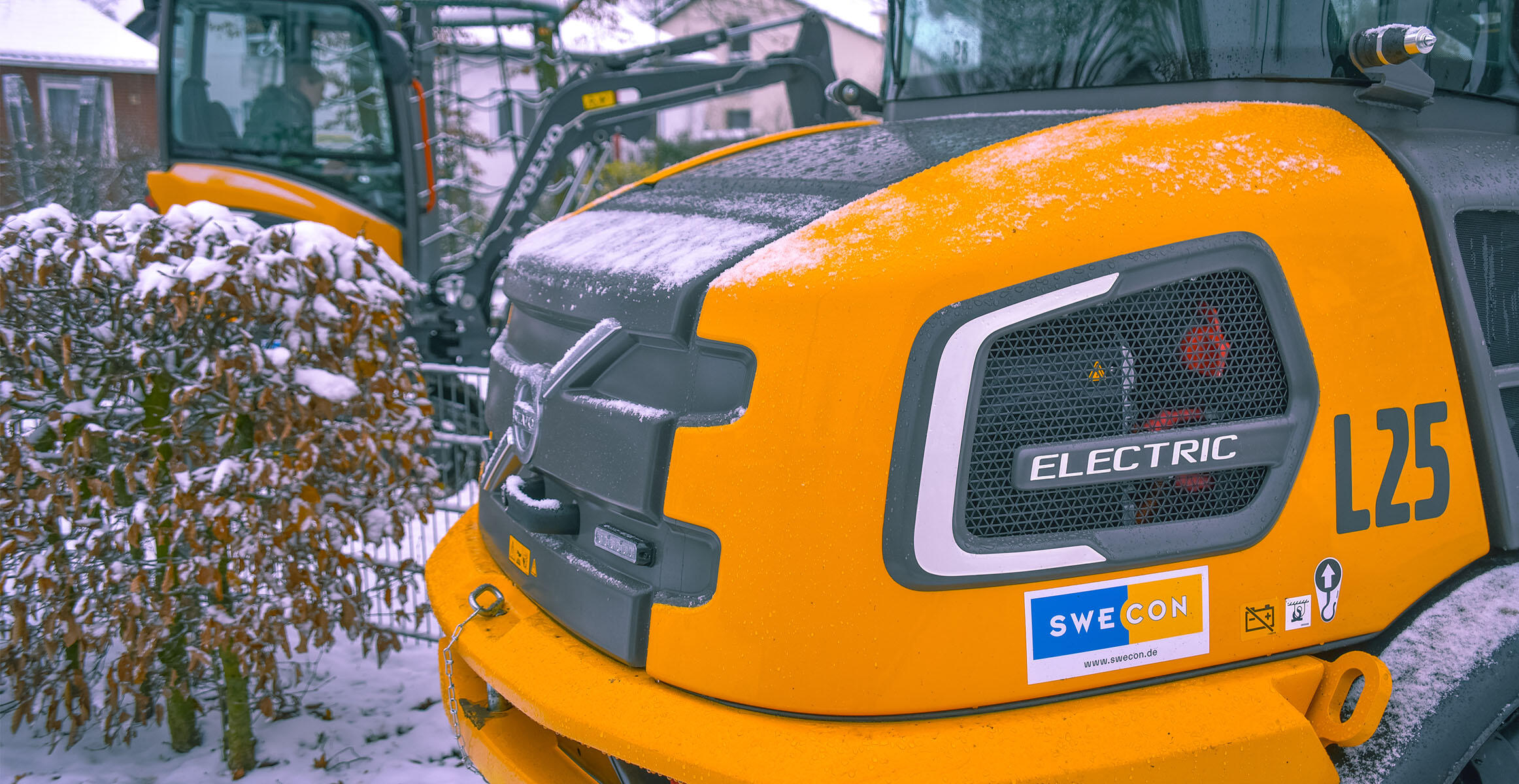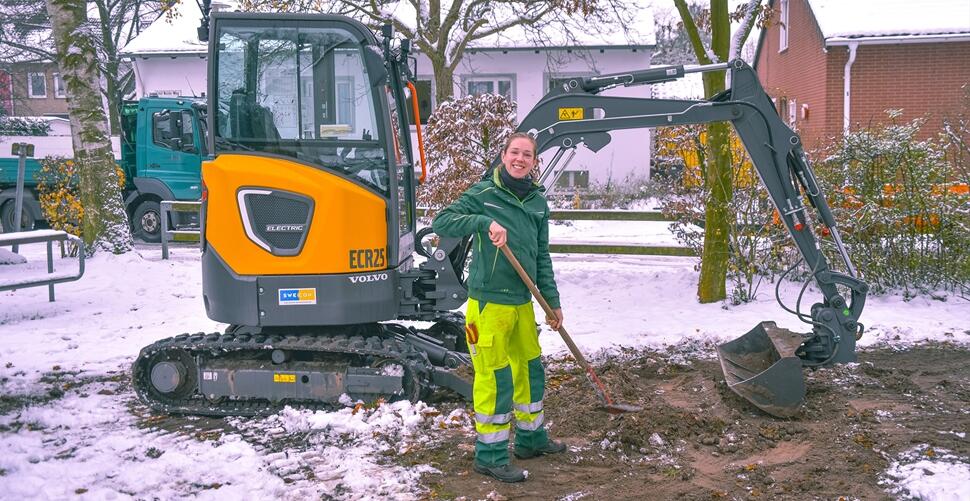When the City of Hanover committed to electrifying as much of its municipal fleet as possible, it thought that finding reliable electric construction equipment would be a challenge. That was until Volvo Construction Equipment (Volvo CE) provided the answer.

The electrification of its fleet is a key part of an ambitious plan by the City of Hanover to achieve climate neutrality by 2035 – an accelerated timeframe from its original target of 2050. It is a goal aligned with Volvo CE which aims to make significant carbon reductions by 2030 and reach net zero greenhouse gas emissions across its value chain by 2040.
The capital of Lower Saxony in Germany laid out its holistic approach to decarbonization back in 2018 under the banner “Hannover stromert”, translating literally as ‘Hanover is streaming’ and a reference to their electromobility ambitions. One of its aims is to increase the proportion of electric vehicles across its municipal fleet of approximately 1,000 vehicles – most of which are trucks, but also tractors and construction machinery. It also aims to have only electric-powered solutions for every replacement and every new purchase.
Green beginnings
The city has been growing trees in a dedicated nursery since 1996, which it then replants around the urban area. So, when it came to redeveloping this municipal tree nursery in Bothfield, a neighborhood in the northeast of Hanover, the city put out a tender calling for a 5-tonne compact wheel loader. It also needed to have a maneuverable articulated handlebar suitable for a range of attachments.

The L25 Electric was put to work alongside the ECR25 Electric
Given that the city was already aiming to put to work its existing Volvo L35G wheel loader for the project, Volvo CE and dealer Swecon suggested that adding a zero-emission partner like the L25 Electric wheel loader would fulfil the brief, as well as add sustainability benefits.
The electric machine was put to work in the outdoor project, which involved earthworks to build a playground, alongside a demonstration model of the 2.8-tonne ECR25 Electric compact excavator.
High performing electromobility
Despite operating during cold and snowy conditions, operators Vanessa Raute and Merle Rittmeier praised the machines’ performance.
Vanessa said: “The machines worked wonderfully. It was quick and easy to find our way around – and the result is a good performance, comfort and an ease of control. The silence is great and there were no exhaust fumes or hardly any vibrations at all.”

Operator Vanessa Raute commended the machines’ performance, ease of operation and near silence.
They also praised the detailed briefing and training they received from Swecon’s product manager Tobias Speiser, which allowed them to immediately put the machines to optimum use.
Thanks to low noise levels and zero exhaust emissions, the L25 Electric was also the perfect option for loading work inside the depot. “Especially in the hall, quiet operation without diesel exhaust fumes is a great advantage. And we can charge here overnight on a normal 16-amp socket.”
While power for charging was readily available inside the depot, operators reported that they needed to make adjustments to their working schedule when driving outside with the heating on – in order to ensure optimum runtime. For future projects, they aim to take advantage of Volvo CE’s growing portfolio of flexible charging options, such as mobile energy storage systems, designed to make off-grid charging easier.

Vanessa with the ECR25 Electric
An ongoing journey
Throughout the use of these electric machines, operating hours, charging time and maintenance costs are being recorded and compared against diesel engines. The findings from this project will be instrumental for both the City of Hanover and Volvo CE to continually finetune the electric ecosystem – factors like battery life, charging options and infrastructure.
“We’ll know more in a few years,” said Robert. “At the moment, we are in a pioneering role with our depot. Apart from electric handheld implements, there is no other experience in the machine sector. We will have an electric tractor and an electric mower hopefully following soon. But of course, it has to be financially viable.”
He added that he hopes to install solar power systems in the depot. The installation of renewable energy will further enhance their ongoing decarbonization transition – in line with the ultimate goal of “Hannover stromert” towards carbon neutrality.
To understand how Volvo CE’s electric machines can support you on your landscaping projects, visit the website: https://www.volvoce.com/europe/en/electric-construction/landscaping/.
Journalists wanting further information, please contact:
SANDRA JANSEN
Media Relations & Communications Manager
Volvo Construction Equipment Germany GmbH
E-mail: sandra.jansen@volvo.com